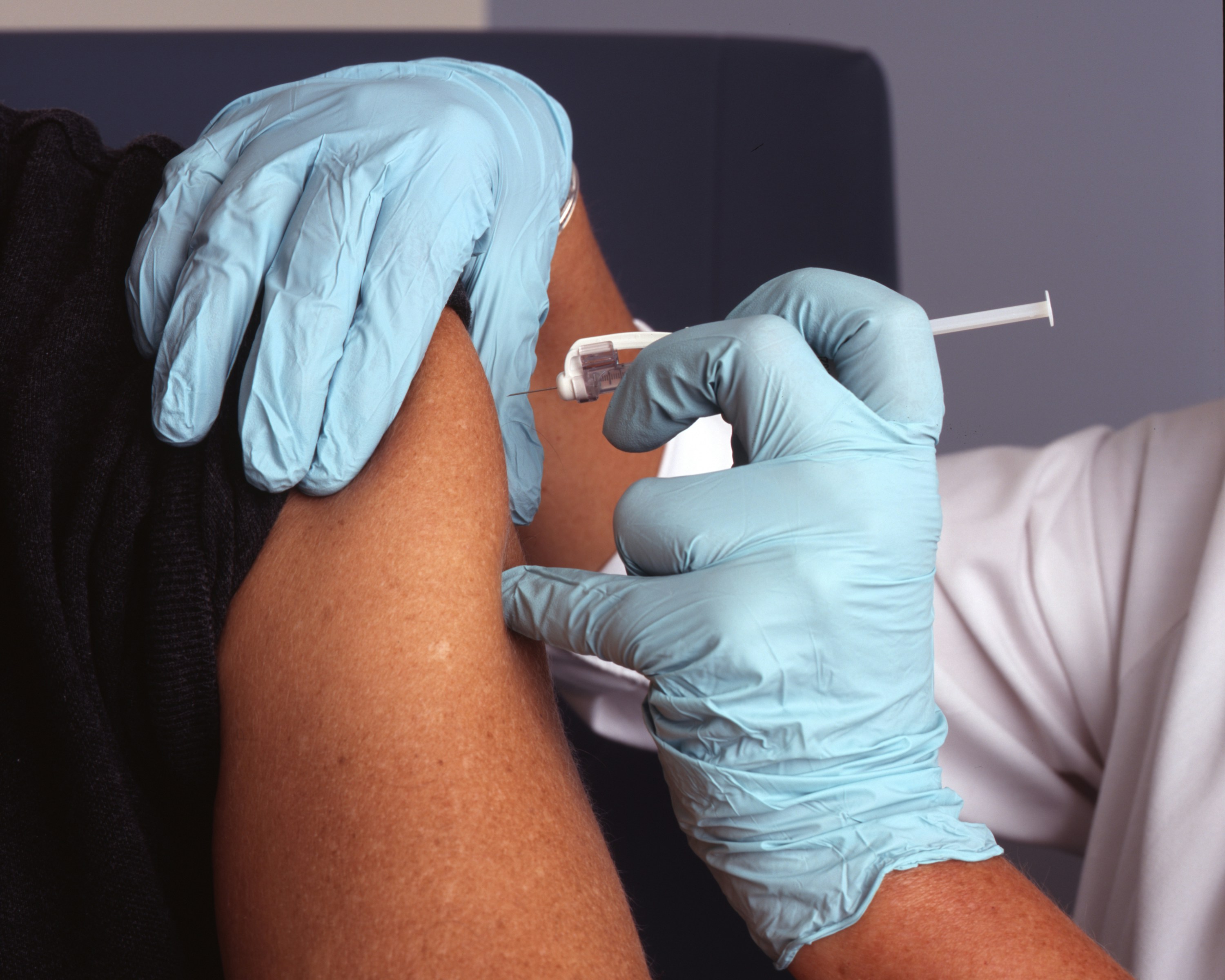10 Essential Health Tips for a Stronger Immune System in 2025
In today's fast-paced world, maintaining a robust immune system has never been more important. As we navigate through 2025, new research continues to emerge about how we can naturally boost our body's defenses against illness. This comprehensive guide explores ten evidence-based strategies to strengthen your immune system, helping you stay healthy year-round.
1. Prioritize Nutrient-Dense Foods

Your immune system requires a variety of nutrients to function optimally. Focus on incorporating these immune-boosting foods into your daily diet:
- Colorful fruits and vegetables: Rich in antioxidants like vitamin C and beta-carotene, these foods help combat free radicals that can damage immune cells. Aim for at least 5-7 servings daily, including citrus fruits, berries, bell peppers, and leafy greens.
- Probiotic-rich foods: Yogurt, kefir, sauerkraut, and kimchi support gut health, where approximately 70% of your immune system resides. Recent studies show that a healthy gut microbiome is directly linked to improved immune response.
- Protein sources: Lean meats, poultry, fish, eggs, legumes, and nuts provide the amino acids necessary for building and repairing immune cells.
- Healthy fats: Omega-3 fatty acids found in fatty fish, flaxseeds, and walnuts help reduce inflammation and support immune function.
According to a 2024 study published in the Journal of Nutrition, individuals who consumed a diet rich in these nutrients experienced 30% fewer respiratory infections compared to those with less nutritious diets.
2. Stay Properly Hydrated

Water plays a crucial role in immune function by:
- Transporting nutrients to cells
- Flushing toxins from the body
- Supporting lymphatic system function
- Maintaining mucous membrane integrity in the respiratory tract
The latest hydration research suggests that individual water needs vary significantly based on activity level, climate, and body composition. Rather than following the traditional "8 glasses a day" rule, experts now recommend:
- Men: Approximately 3.7 liters (125 ounces) of total water daily
- Women: Approximately 2.7 liters (91 ounces) of total water daily
Remember that about 20% of your daily water intake comes from food, particularly fruits and vegetables. Herbal teas and infused water can also contribute to your hydration goals while providing additional antioxidants.
3. Prioritize Quality Sleep

Sleep is when your body performs critical immune-supporting functions. During deep sleep, your immune system releases cytokines, proteins that help fight infection and inflammation. Chronic sleep deprivation can significantly reduce immune function and make you more susceptible to illness.
A groundbreaking 2025 study from the Sleep Research Institute found that individuals who consistently got less than 6 hours of sleep were 4.2 times more likely to catch a cold when exposed to the virus compared to those who slept 7-8 hours.
To improve sleep quality:
- Maintain a consistent sleep schedule: Go to bed and wake up at the same time daily, even on weekends.
- Create a sleep-conducive environment: Keep your bedroom dark, quiet, and cool (65-68°F or 18-20°C).
- Limit screen time before bed: The blue light from devices can suppress melatonin production. Use night mode features or blue light blocking glasses if necessary.
- Consider sleep tracking: The latest wearable technology can provide insights into your sleep patterns and quality, helping you make targeted improvements.
4. Engage in Regular Physical Activity

Exercise contributes to immune health in multiple ways:
- Promotes good circulation, allowing immune cells to move efficiently throughout the body
- Temporarily raises body temperature, which may help kill pathogens
- Reduces stress hormones that can suppress immune function
- Stimulates the production of endorphins, which boost overall well-being
The American College of Sports Medicine's 2025 guidelines recommend:
- Moderate-intensity aerobic activity: 150-300 minutes per week (e.g., brisk walking, cycling, swimming)
- Vigorous-intensity aerobic activity: 75-150 minutes per week (e.g., running, HIIT workouts)
- Strength training: At least 2 days per week, working all major muscle groups
- Flexibility and mobility work: Daily stretching or activities like yoga
Recent research indicates that even short bursts of activity throughout the day can provide immune benefits. Try incorporating "exercise snacks" – 5-10 minute movement sessions – into your daily routine if you struggle to find time for longer workouts.
5. Manage Stress Effectively

Chronic stress triggers the release of cortisol and other stress hormones that can suppress immune function over time. A 2024 meta-analysis published in Psychological Medicine found that chronic stress was associated with a 50% increase in respiratory infection risk.
Effective stress management techniques include:
- Mindfulness meditation: Even 10 minutes daily can reduce stress hormone levels. Apps like Calm and Headspace offer guided sessions.
- Deep breathing exercises: The 4-7-8 technique (inhale for 4 counts, hold for 7, exhale for 8) activates the parasympathetic nervous system.
- Nature exposure: Spending time in natural settings has been shown to lower cortisol levels and improve immune markers.
- Cognitive behavioral techniques: Identifying and reframing negative thought patterns can reduce stress responses.
- Social connection: Meaningful relationships and community involvement provide emotional support that buffers against stress.
6. Maintain a Healthy Weight

Both obesity and being underweight can compromise immune function. Excess body fat, particularly visceral fat that surrounds organs, creates chronic low-grade inflammation that can impair immune responses. Conversely, being significantly underweight may lead to nutrient deficiencies that weaken immunity.
Rather than focusing on restrictive diets, health experts in 2025 recommend:
- Eating mindfully and recognizing hunger/fullness cues
- Emphasizing whole, minimally processed foods
- Including protein and fiber at each meal for satiety
- Limiting ultra-processed foods and added sugars
- Combining nutrition changes with regular physical activity
A 2025 study in the International Journal of Obesity found that individuals who maintained a healthy weight had significantly higher levels of natural killer cells, important immune components that target virus-infected cells.
7. Limit Alcohol Consumption

Excessive alcohol consumption can weaken your immune system in several ways:
- Disrupting gut barrier function, allowing more pathogens to enter the bloodstream
- Impairing the function of immune cells in the lungs, increasing susceptibility to respiratory infections
- Disrupting sleep patterns, which further compromises immunity
- Depleting nutrients essential for immune function
Current guidelines from the World Health Organization (2025) suggest:
- No more than 10 standard drinks per week
- No more than 4 standard drinks on any single occasion
- At least 2-3 alcohol-free days per week
If you do drink alcohol, stay hydrated by alternating alcoholic beverages with water, and consider supplementing with B vitamins and zinc, which are often depleted by alcohol consumption.
8. Don't Smoke or Vape

Smoking and vaping significantly impair immune function, particularly in the respiratory tract. They damage the cilia (tiny hair-like structures) that help clear pathogens from your airways and reduce the effectiveness of immune cells in the lungs.
A comprehensive 2024 review in the European Respiratory Journal found that smokers were 2.4 times more likely to develop severe respiratory infections compared to non-smokers. Even e-cigarette users showed a 1.8 times higher risk, dispelling the myth that vaping is harmless.
If you currently smoke or vape, quitting will provide immediate and long-term immune benefits. Modern cessation approaches include:
- Nicotine replacement therapy (patches, gum, lozenges)
- Prescription medications like varenicline or bupropion
- Behavioral therapy and support groups
- Mobile apps designed to help track progress and manage cravings
9. Consider Targeted Supplementation

While a balanced diet should be your primary source of nutrients, certain supplements may help fill gaps and support immune function. Based on recent research, these supplements show the most promise:
- Vitamin D3: Many people are deficient, especially in northern climates. Vitamin D receptors are found on immune cells, and adequate levels are associated with lower rates of respiratory infections. The recommended daily intake has increased to 1000-2000 IU for most adults in 2025 guidelines.
- Zinc: Essential for immune cell development and communication. Supplementation may reduce the duration of colds when taken at onset. Typical dose: 15-30mg daily.
- Vitamin C: While it may not prevent colds in the general population, it can reduce their severity and duration. Typical dose: 500-1000mg daily.
- Probiotics: Specific strains like Lactobacillus rhamnosus GG and Bifidobacterium lactis BB-12 have shown immune benefits in clinical trials.
Always consult with a healthcare provider before starting any supplement regimen, as individual needs vary and some supplements can interact with medications.
10. Practice Good Hygiene

Basic hygiene practices remain one of the most effective ways to prevent infection:
- Hand washing: Wash hands with soap and water for at least 20 seconds, especially before eating, after using the bathroom, and after being in public places.
- Respiratory etiquette: Cover coughs and sneezes with a tissue or your elbow, not your hands.
- Regular cleaning: Disinfect frequently-touched surfaces in your home, especially during cold and flu season.
- Food safety: Properly store, prepare, and cook foods to prevent foodborne illness that can stress your immune system.
The latest research from the CDC indicates that these simple measures can reduce your risk of respiratory infections by up to 45%.
Conclusion
Building and maintaining a strong immune system requires a holistic approach that encompasses nutrition, physical activity, stress management, and lifestyle choices. By implementing these ten evidence-based strategies, you can significantly enhance your body's natural defenses against illness.
Remember that immune health is not achieved overnight – consistency is key. Start by incorporating one or two of these tips into your routine, then gradually add more as they become habits. Your immune system will thank you with improved resilience and fewer sick days in 2025 and beyond.
References
- Journal of Nutrition. (2024). "Dietary patterns and respiratory infection incidence: A prospective cohort study."
- Sleep Research Institute. (2025). "Sleep duration and susceptibility to common cold viruses."
- American College of Sports Medicine. (2025). "Physical Activity Guidelines for Americans."
- Psychological Medicine. (2024). "Chronic stress and immune function: A meta-analysis."
- International Journal of Obesity. (2025). "Body composition and natural killer cell activity."
- World Health Organization. (2025). "Guidelines on alcohol consumption."
- European Respiratory Journal. (2024). "Smoking, vaping, and respiratory infection risk."
- Centers for Disease Control and Prevention. (2025). "Hygiene practices and infection prevention.




0 Comments